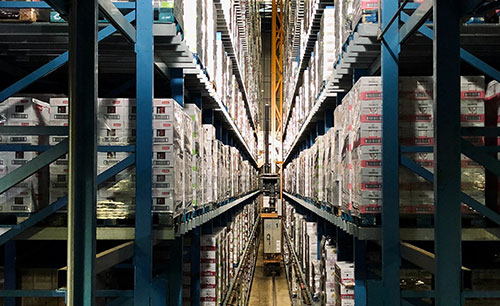
New Requirements of the Supply Chain Act – does your company need to take action?
The implementation of the EU Whistleblower Directive is being neglected by many companies. As the deadline for some companies to implement is already mid-December and both the Supply Chain Sourcing Obligations Act (hereafter Supply Chain Act) and the EU Conflict Minerals Regulation (adopted in 2017) require a complaint procedure, your company should not wait too long with the implementation.
The required complaint procedure in the Supply Chain Act
In June 2021, the Supply Chain Act was passed to counter human rights violations and environmental damages in connection with production and trade. Companies are thus obliged to comply with corporate responsibility. Implementation of and compliance with the Supply Chain Act applies to all companies based in Germany, depending on the number of employees. Companies with more than 3,000 employees must have implemented the requirements by 2023. Companies with more than 1,000 employees by 2024. In addition to the observance of human rights and environmental due diligence obligations in the supply chain, § 3 also stipulates the obligation to establish a complaints procedure.
§ Section 8 sets out the rules of the complaints procedure to the effect that the company must set up a complaints procedure that is also accessible to indirect suppliers or other persons.
In this respect, § 10 prescribes an obligation to document and report the measures taken on the basis of complaints received.
A missing or insufficient complaint procedure according to the Supply Chain Act can be punished by BAFA with a fine of up to €800,000. The required complaint procedure is anchored in Regulation (EU) 2017/821 of the European Parliament and of the Council of 17 May 2017 establishing supply chain due diligence obligations for Union importers of tin, tantalum, tungsten, their ores and gold from conflict and high risk areas.
Article 4 e) of the Regulation requires a grievance mechanism in the obligations related to the management system as an early warning system for risk identification:
"...implement or provide a grievance mechanism as an early warning system for risk identification, whether through cooperative agreements with other economic operators or organizations or by facilitating the use of an external expert or body such as an ombudsman."
As with the Supply Chain Act, it calls for the grievance mechanism to "...allow all interested parties, including whistleblowers, to raise concerns about the circumstances of mineral extraction and trade and handling of these minerals in conflict and high risk areas and their export from conflict and high risk areas."
Why the Supply Chain Sourcing Act and the EU Conflict Minerals Regulation will inevitably lead to the implementation of a Whistleblower System.
After a long discussion, the EU Whistleblower Directive (Directive (EU) 2019/1937 - "EUWBR") entered into force in December 2019. Contrary to the often held belief, the Directive has direct effect, i.e. without being transposed into national law. The EU Directive also contains sanctions for companies that attempt to prevent whistleblowing by not setting up a whistleblowing system. The requirements of the EU Whistleblower Directive are almost identical to the requirements of the above-mentioned laws:
- Companies are required to set up reporting channels that enable whistleblowers to report possible violations of the law. Whistleblowers can be all persons who have obtained information about possible violations in the course of their professional activities. This includes, in particular, employees, members of management bodies, self-employed persons or also relatives of contractors, subcontractors or suppliers.
- The reporting channels to be established by companies must be designed, set up and operated in such a way that the confidentiality of the identity of the whistleblower and such persons mentioned in the report is maintained. Appropriate measures must be taken to prevent unauthorized persons from accessing this information.
- The reports in the whistleblower system must be processed by an impartial person or department within the company or outside the company (e.g. external ombudsman), who is also responsible for receiving the report and for follow-up measures (e.g. clarification) on the reports.
Bottom line
To meet the requirements for the above-mentioned legally required complaint mechanisms, there are various options - from the cost-intensive software solution for corporations to a customized implementation for medium-sized companies with an adapted budget. The benefits for your company to now start looking at implementation are:
- The Supply Chain Act requires a complaints procedure, which is subject to fines if not implemented.
- The EU Conflict Minerals Regulation requires a complaints procedure.
- The EU whistleblower directive is bound to deadlines regarding implementation.
- If you are a supplier to large companies covered by the above legal framework, you will inevitably have to provide evidence as a supplier in order not to lose your status as a supplier.
Do not underestimate the time required to implement an appropriate and effective whistleblowing system or complaints mechanism - we will be happy to advise and assist you in this regard.
Further information
Would you like more information on this topic? Then please get in touch with us. Our offices in Germany, Estonia and Singapore are available for a non-binding consultation.
Text written by Saskia Rotterdam